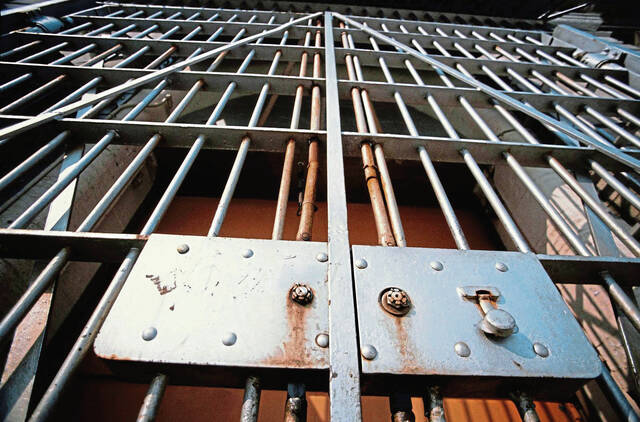The Pennsylvania Department of Corrections (DOC) has one of the highest recidivism rates in the nation. That’s why its decision last month to close the Quehanna Boot Camp, the state prison with the lowest rate of recidivism and the highest rate of GED graduations, continues to deserve scrutiny.
On the homepage of the DOC website, one of the first sentences the DOC uses to describe its mission is: “Through educational opportunities and treatment programs, it prepares incarcerated individuals for a successful reentry back into the community.” The boot camp program includes a regular regimen of exercise and character-building programs that hold inmates accountable for their behavior and rewards them for good behavior.
The program’s success was so widely regarded that former Corrections Secretary Martin Horn proclaimed boot camps “are here to stay” in Pennsylvania. Horn said the approach to holding inmates accountable “provide(s) as much safety — if not more safety — to the public at a better cost.”
That’s important because we’re told the decision to close Quehanna would save taxpayer money, but does it? The DOC’s own 2022 report found that recidivism alone costs the commonwealth $3.1 billion. Overall, nearly 65% of the commonwealth’s inmates returned to prison within three years.
There was a lesson to be learned by the success at Quehanna, but sadly our department ignored it. As someone who has worked inside our prisons for nearly three decades, it’s clear to me that we no longer hold inmates accountable.
Simply put, we aren’t “correcting” anything, and our recidivism statistics prove this.
Now, we’re doubling down on this failure with the closure of the one facility that was the best at rehabilitation. Quehanna incentivized inmates for good behavior. Rewards should be goals, not expectations. Today, inmates can walk into prison and automatically get everything they want, including access to the commissary and a television.
Sure, there are some disciplinary actions taken, but they’re relatively minor. The default approach has been to let inmates off with minimal or no punishment for poor behavior.
A prime example is corrections officer assaults by inmates. Officers can suffer brutal, life-altering injuries. Non-physical assaults can be just as devastating. Inmates throw bodily fluids at officers, which can lead to disease and take a tremendous mental toll on officers and their loved ones. Such assaults used to earn someone up to a year in the prison’s restricted housing units (RHUs). Today, such behavior gets you no more than 30 days.
And going to the RHUs isn’t really a deterrent anymore, either. While some try to paint them as a Hollywood movie’s version of 20th-century solitary confinement, the reality is inmates have cellmates. In fact, they even have the freedom to choose to have their own cell. They also get a TV, snacks and outdoor recreation, hardly the “Escape from Alcatraz” setting some imagine.
If the point of corrections is to truly rehabilitate inmates for reentry into society, Quehanna’s military-style program provided actual incentives for good behavior, while building character. While the boot camp’s program lasted just six months, it created outcomes taxpayers expect for their investment. Inmates learned discipline and many walked out with a GED.
In fact, Quehanna inmates received 30% of all GEDs earned within the system. That’s important because inmates with at least a high school degree fare better, according to the DOC’s own report, which makes the Quehanna decision all the more short-sighted.
For some reason, this isn’t being done in other prisons. That’s not to say Quehanna is a one-size-fits-all approach, but its main themes and approach to rehabilitation proved that it worked time and time again and was a good investment of taxpayer dollars.
That’s why closing Quehanna made no sense. In making this decision, DOC ignored years of its own data and countless personal stories of how the program helped people successfully reintegrate into society.
Closing Quehanna won’t save money. Sadly, the DOC’s own data shows it will likely only increase costs and recidivism.
Michael Ohler is president of the Pennsylvania State Corrections Officers Association.








